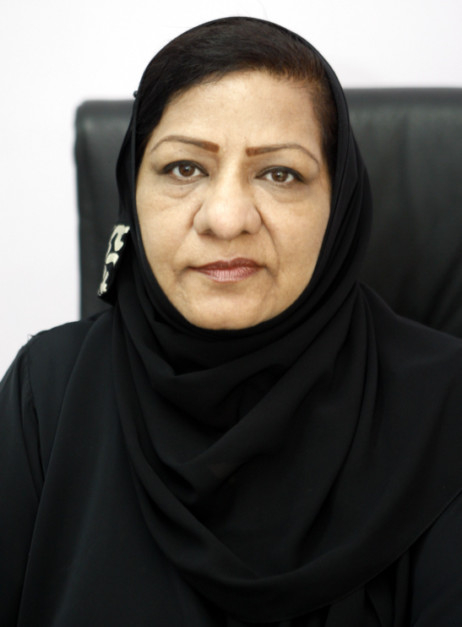
Dubai
A few readers wrote in complaining about the lack of adequate facilities for people with special needs in Dubai. Gulf News investigates.
For people with special needs, well-equipped public transportation is vital to improve their mobility around the city. We spoke to Aslam Darbar, Mukesh Bathija and Arsalan Ahmed Khan to find out about their experiences.
Darbar takes the Metro to his workplace in Jebel Ali, from Deira, every day. He has been suffering from severe rheumatoid arthritis for more than 30 years. His symptoms began at the age of seven. Although he can walk, he experiences severe pain and cannot cover distances that take more than 15 minutes at the most. He said: “It is very difficult for me to keep standing in the Metro, especially during peak hours. It is expensive to take a taxi and buses take too long, so the Metro is my only option. There is a need for a few allocated seats on the train for people with diabilities.”
Arsalan Ahmed Khan works as a sales assistant at a mall, and is a regular commuter on the bus and Metro. He has a severe limp due to a botched surgery and cannot walk distances because of the pain.
However, contrary to Darbar’s experience, he has not faced any difficulties using public transportation, and usually finds a seat in the bus. During peak hours on the Metro, however, he does not always find a seat. He said: “Sometimes someone gives me their seat, but not always. It is easy to take the bus and Metro, and I do not have any problems.”
For Karan Bathija, who is deaf and mute, public transportation has allowed him to become more independent. He has been working as a sales assistant at fashion retail outlet for the past year, and uses public transportation to travel to his workplace. His brother Mukesh explained: “He has never gotten off on the wrong stop or communicated any problems to me. I do think there are sufficient facilities available, but people need to be a little more considerate with people with disabilities. They seem apathetic, and this culture on public transportation needs to change.”
The management of the Roads and Transport Authority told Gulf News in a statement, when queried on the issue, that it has been working towards making public transportation and roads more friendly toward people with disabilities: “With the ongoing development process, and execution ... in accordance with the world-class standards, RTA has committed to play its CSR [Corporate Social Responsibility] role, which ensures its emergence as a socially responsible party that ... care for the disabled.” But it is an ongoing development process. With respect to public transportation, it has created facilities like lifts, hand railings, audio notices and priority seating areas. It has also introduced special taxis with equipment that caters to people with disabilities.
Although there are facilities available for those in need, it is also passengers’ responsibility to be mindful of people with disabilities, especially during peak hours.
Commuting to work is important, but so is having fun. With the variety of entertainment that the UAE offers all its residents, we looked into the facilities available at entertainment venues for its patrons with disabilities.
Komal Singh, 31, suffers from spina bifida, a birth defect which has resulted in the paralysis of her lower limbs. A few weeks’ ago, she visited Vox Cinemas to watch a movie with a friend. At the cinema, she had to seat herself close to the screen because there were no available wheelchair ramps. She said: “All public venues should be made convenient for individuals in a wheelchair. If no permanent ramps can be made, there should be portable ramps made available. During renovations, the cinema management should be aware that their cinemas are being used by individuals on a wheelchair.”
In response to her complaint, VOX marketing manager Ashleigh Potts hopes that this issue will be resolved by the latest improvements that VOX Cinemas is making for its patrons with disabilities. She said: “VOX Cinemas is focusing on enhancing accessibility for all guests. In a number of cinemas recently opened, VOX has included elevator access to cinema auditoriums ensuring both traditional and VIP seating is available to all guests.”
In contrast to Singh’s experience, Safia Bari, director of the Special Needs Future Development Center, did not think that this posed a big problem. She esaid: “Our children go to cinemas during their summer camps, and there is usually no problem. Children using wheelchairs seat themselves in the small pathway between the lower seating area and the upper seating areas in the cinemas. For security reasons, it is better for them to be in that location in case of an emergency [such as a fire] situation.”
Bari reflected positively on the progress that the UAE, especially Dubai, has made over the past few years.
As the mother of a child suffering from mild cerebral palsy, she acknowledged that the new facilities that the government has created for people with special needs across the country are extremely helpful.
She said: “Initially it was quite difficult here, but there has been a lot of improvement in the past few years. At present, new buildings are required to have built-in ramps, and public transportation does have some kind of facility for people with disabilities.”
The UAE is on the right path towards creating a safe environment for all its residents. In light of the country’s progress thus far, its residents with disabilities can hope for a bright future ahead. What more can be done? Share your thoughts with us at readers@gulfnews.com.
— The writer is an intern with the Readers Desk at Gulf News.









